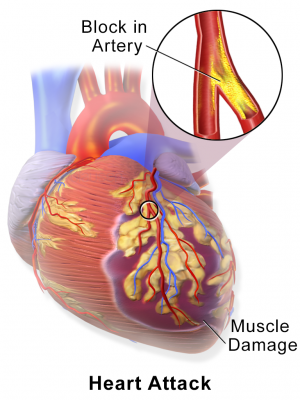Iron treatments found to reduce heart attacks in patients on dialysis

A new paper in Cardiovascular Research, published by Oxford University Press, indicates that iron treatments may reduce heart attacks in patients experiencing kidney failure undergoing dialysis.
Coronary artery disease is prevalent in patients with chronic kidney disease but how often heart attacks occur in patients on maintenance hemodialysis and the appropriate treatments to try to prevent heart attacks in such cases is a matter of debate. Observational studies in humans and animal studies lead some researchers to express concern that intravenous iron could increase the prevalence or severity of heart attacks. Others argue that because iron is likely to result in more oxygen delivery, intravenous iron may reduce coronary events. But there was limited research to support this.
This paper is an analysis of 2141 patients enrolled in the Proactive IV Iron Therapy in Haemodialysis Patients (PIVOTAL) trial, a large-scale controlled experiment at 50 sites in the United Kingdom. The researchers here investigated the effects of high-dose versus low-dose intravenous iron in patients on hemodialysis. They report the rates of heart attacks, types of heart attacks, the prognostic importance of these heart attacks, as well as the effect of high versus low dose iron.
The researchers measured the impact of iron interventions on type 1 heart attacks (the most common type of heart attacks, which results from a blood clot or some other blockage in blood flow) and type 2 heart attacks (which occur without a blockage, in situations where the heart needs more oxygen than it's getting). The researchers found that 8.4% of patients on dialysis had heart attacks over two years. Rates of type 1 heart attacks were 2.5 times higher than type 2 heart attacks.
High dose intravenous iron reduced heart attacks compared to low dose intravenous iron. Heart attacks occurred in 76 of 1093 patients (7%) in the high dose group and 100 of 1048 patients (9.5%) in the low dose group. Type 1 heart attacks occurred in 5.5% of patients in the high dose group and 7.3% in the low dose group. Investigators found no reduction in type 2 heart attacks from intravenous iron intervention.
"Very few therapies investigated in people on dialysis have been shown to improve outcomes," said the paper's lead author, Mark Petrie. "We are delighted that high dose iron given into people's veins reduces heart attacks. Our hope that this treatment is used around the world in people with kidney failure on dialysis."
More information: Mark C Petrie et al, High-dose intravenous iron reduces myocardial infarction in patients on haemodialysis, Cardiovascular Research (2021). DOI: 10.1093/cvr/cvab317

















